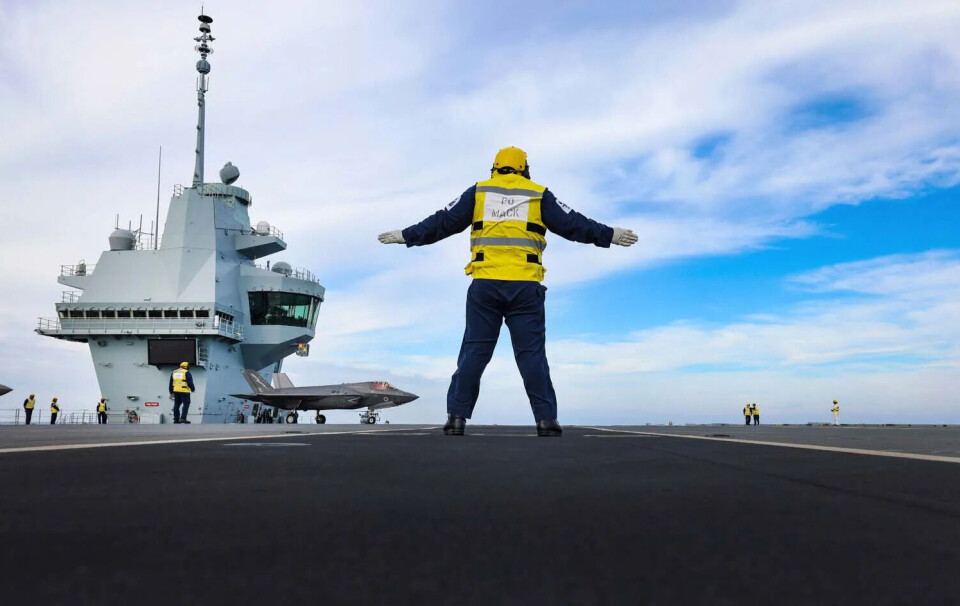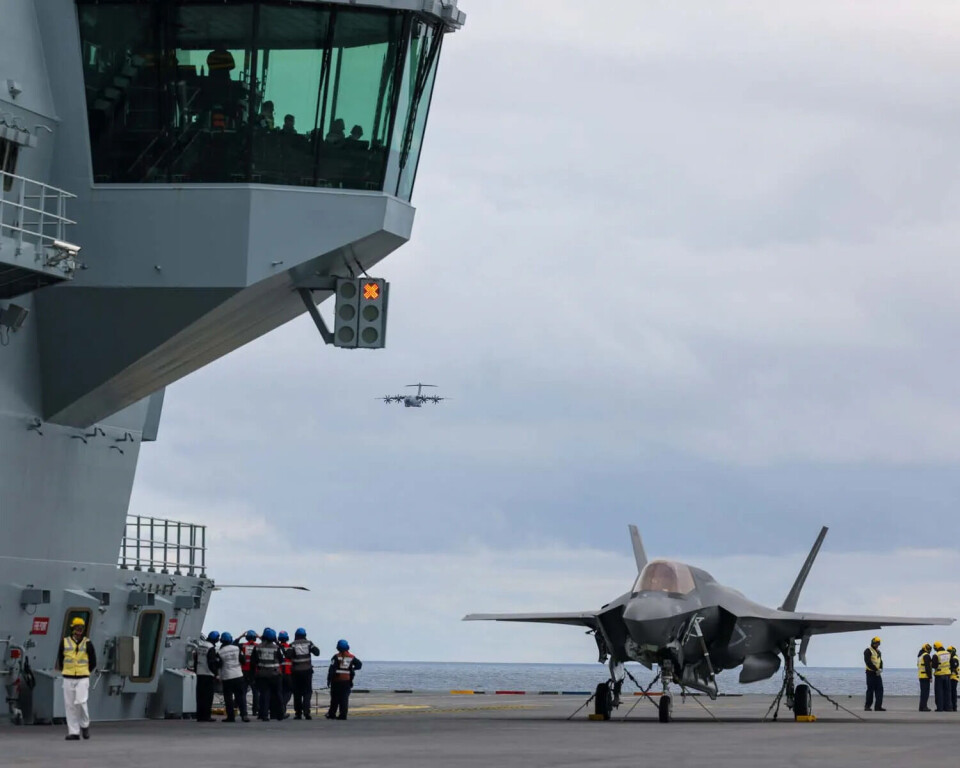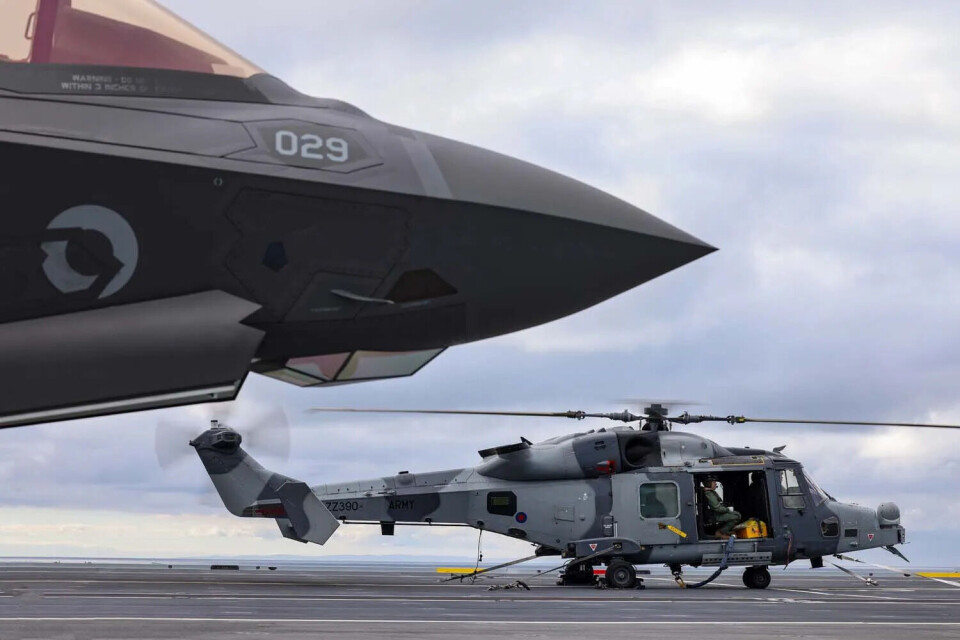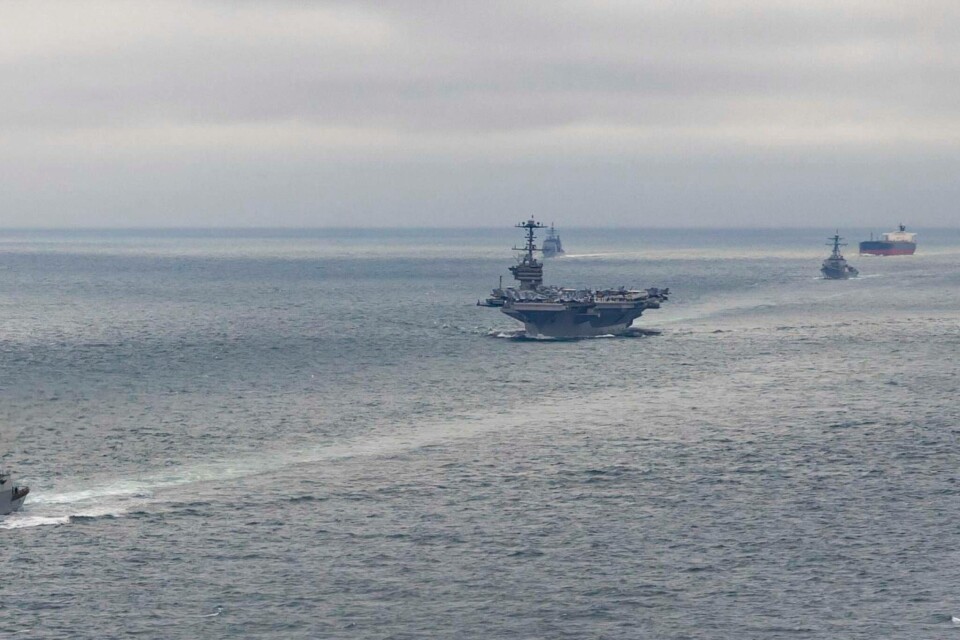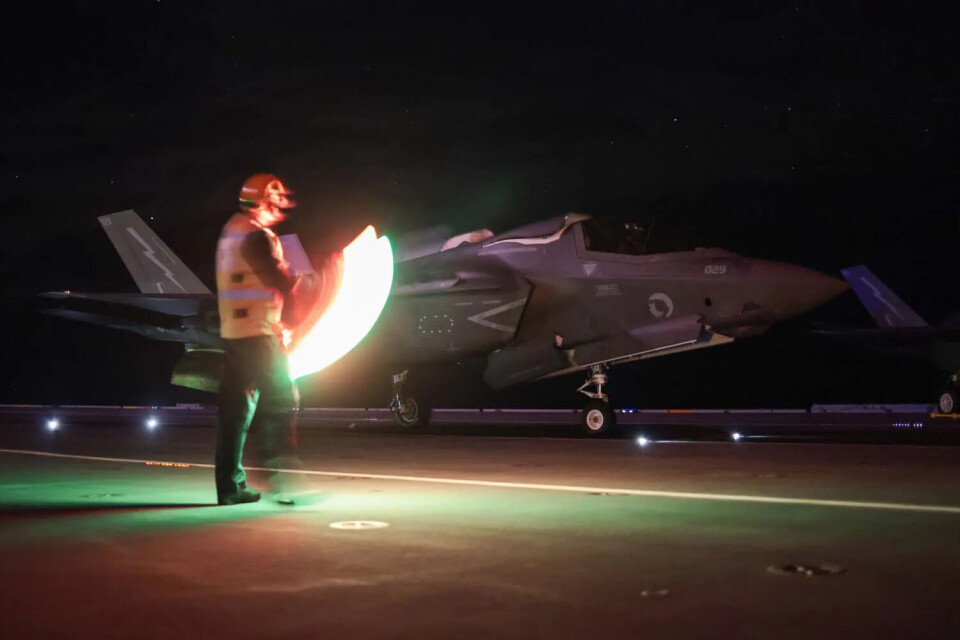Two carrier groups on exercise outside Norway
This is a deterrence against potential future attacks on the Nordic region, says the Norwegian Armed Forces in a statement released during the weekend.

The US Navy aircraft carrier USS Harry S. Truman came north via the English Channel and teamed up with the UK Carrier HMS Prince of Wales outside Scotland.
The two powerful warships are escorted by numerous warships and support vessels, the Royal Navy informs.
Sailing outside Norway, the two NATO carrier groups is currently training training with the Norwegian Armed Forces in an exercise named Strike Warrior 2024.
“The ability of Norway and the Armed Forces to receive allies is crucial for the defence of Norway and the Nordic region,” says Vice Admiral Rune Andersen, Chief of the Norwegian Joint Headquarters (NJHQ) in a statement.
Defending Norway to a large extent depends on reinforcement by NATO allies and maritime security along the Nordic country’s coastline from the United Kingdom in the south to the maritime border areas with Russia up north in the Barents Sea.
“The USA clearly shows that they will stand with their allies,” says Andersen and underlines that “stability in the northern areas is also important to them.”
The Armed Forces do not reveal how far north the carrier groups will sail. In February this year, the HMS Prince of Wales went all north to the Lofoten area inside the Arctic Circle as part of the winter exercise Nordic Response.
Norway’s largest naval vessel, the logistic support ship KNM Maud, will after the current joint exercise continue to sail together with the UK carrier strike group to the Indo-Pacific region.
Multi-domain
The ongoing exercise tests tactics across a range of scenarios, including anti-submarine warfare, countering attacks from uncrewed systems, air defence exercises, pilot rescues and practising sailing through narrow straits while under threat.
A large number of warships, including frigates and submarines, participate along with P8 aircraft for anti-submarine operations. Land forces are also part of the exercise.
“The defence of Norway is based on NATO’s collective security and the relationship with close allies, in addition to national defence capability. The close defence cooperation with the USA has been important for Norway for more than 75 years. The presence is an important signal for the close bilateral relationship and increases the credibility of collective defence and deterrence,” says Rune Andersen.
Russia
The Vice-Admiral makes no secret it is Russia that is the opponent.
“Through our ability to cooperate and integrate capabilities between domains and NATO nations, we have a significant military advantage over Russia. NATO is a defensive alliance, but the alliance is always ready to respond if we are challenged,” Andersen states.
NATO last week kicked off its tactical nuclear exercise Steadfast Noon with more than 60 aircraft taking part in training flights over western Europe. The drill will continue until the end of next week, NATO’s headquarter in Brussels informs.
Located in Kirkenes, Norway, just a few kilometres from the borders to Russia and Finland, the Barents Observer is dedicated to cross-border journalism in Scandinavia, Russia and the wider Arctic.
As a non-profit stock company that is fully owned by its reporters, its editorial decisions are free of regional, national or private-sector influence. It has been a partner to ABJ and its predecessors since 2016.
